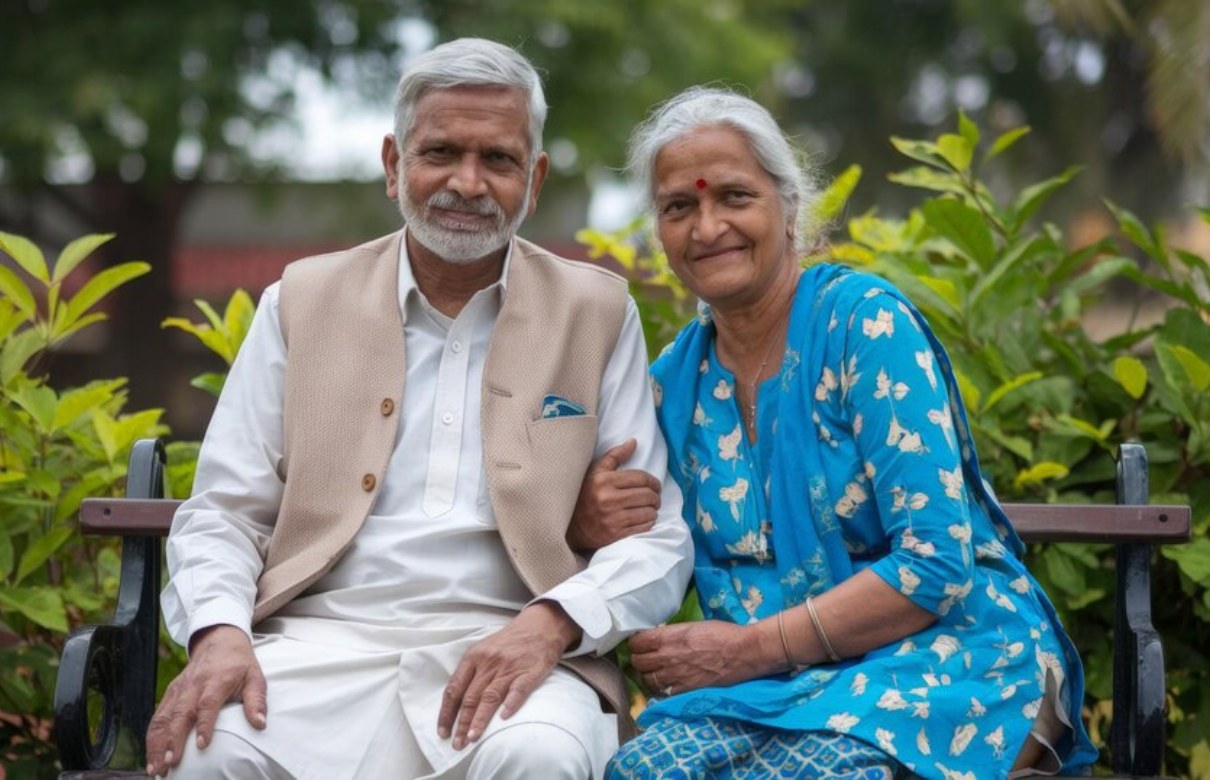Exercitation ullamco laboris nis aliquip sed conseqrure dolorn repreh deris ptate velit ecepteur duis.
- Kamat Grand, Behind Caculo Mall, Panaji, Goa - 403001
- Help Desk +91 94224 46633
Why Over Two-thirds Of India’s Elderly Live Below The Poverty Line?
-
Mahesh Pai > Blog > Articles > Why Over Two-thirds Of India’s Elderly Live Below The Poverty Line?
 Articles
Articles
In India, the golden years of life should ideally be a period of relaxation and contentment. However, for many senior citizens, this phase is ruined by financial difficulties. With the increasing cost of living, insufficient pension systems, inflation and the growing need for healthcare, the elderly in India face a multitude of economic challenges.
Addressing the financial problems faced by senior citizens in India requires a multi-faceted approach involving government intervention, community support, and individual planning. Here are some crucial issues and potential solutions:
1. Insufficient Pension and Retirement Savings
One of the primary financial challenges for senior citizens in India is the inadequacy of pension and retirement savings. The traditional joint family system, which once ensured economic security for the elderly is eroding, leaving many people solely on their savings and pensions. However, pensions are often not enough and not adjusted for inflation. This makes it difficult for retirees to cover basic living expenses. Many senior citizens have not adequately planned for retirement due to various reasons such as lack of financial literacy, irregular employment, or insufficient income during their working years. As a result they face a significant shortfall in their retirement corpus leading to financial instability.
In order to avoid encountering such circumstances, one needs to begin investing at the earliest. A larger corpus and financial freedom are the result of consistency rather than quantity of investment. Additionally, it’s important to select financial products that safeguard your wealth. Don’t invest in instruments with no liquidity and only capital appreciation.
2. Rising Healthcare Costs
Healthcare expenses are a major concern for senior citizens. As people age, the likelihood of chronic illnesses and the need for medical attention increases. In India, healthcare costs are rising steadily, and many seniors do not have adequate health insurance coverage. Even when insurance is available, it often does not cover all medical expenses, this leaves seniors to bear a significant financial burden. Out-of-pocket expenses for treatments, medications, and long-term care can quickly deplete an elderly person’s savings. For those who rely on limited pensions or family support, these costs can be devastating.
Especially Older Persons with higher income tend to incur higher expenses on their health care. This might also be because of the lifestyle habits that contribute to higher health care expenses.
Having an adequate health insurance for the entire family saves the burden of an illness wiping away all the savings.
3. Lack of adequate government schemes
Government schemes like the National Social Assistance Programme (NSAP) and the Pradhan Mantri Vaya Vandana Yojana (PMVVY) exist, but they often fall short in providing sufficient aid to meet the needs of the elderly. The coverage and benefits of these schemes are limited, leaving many senior citizens struggling to make ends meet.
Solely relying on government schemes is a mistake that most individuals make. Higher interest rates for senior citizens does come with terms and conditions which makes it even more essential to have a separate retirement fund.
4. Dependence on Family Support
Cultural norms in India traditionally place the responsibility of caring for the elderly on the family. However with increasing urbanization, migration, and nuclear families, this support system is weakening. Many senior citizens find themselves alone, with little to no financial assistance from their children or relatives. The dependency on family can also lead to financial abuse and exploitation. Instances of elderly people being denied access to their own savings or being forced into transferring their assets to family members are not uncommon. This further intensifies their financial vulnerability.
In the modern world, one needs to make financial plans that will spare their children from the burden of dependency. Selecting a retirement plan that safeguards capital and provides a sufficient pension to cover essential living and medical costs is the first step. In addition, riskier investments can be made in order to satisfy one’s desires and wants.
5. Inflation and Cost of Living
The rising cost of living is another significant challenge for senior citizens in India. Inflation erodes the purchasing power of their fixed incomes, making it difficult to afford essentials such as food, housing, and utilities. The lack of inflation-adjusted pensions means that seniors are often left with stagnant incomes while their expenses continue to rise.
The wiser option to beat inflation is by diversifying ones portfolio and not relying solely on fixed deposits and rental income. Holding on to a lot of cash is also not advisable.
6. Employment Challenges
While some senior citizens seek employment post-retirement to supplement their income, finding suitable work opportunities can be challenging. Age discrimination, lack of relevant skills, and health issues often limit their ability to secure jobs. Moreover, the jobs that are available to them are usually low-paying and do not provide any job security or benefits.
After the age of 60, people must only work as a means to pass time. Retirement should be a time of relaxation, and it can only come from financial independence. Instead of dying rich, begin to live off the wealth that has accumulated over the years and live rich as well.
Conclusion
The financial problems faced by senior citizens in India are complex and multifaceted. Addressing these challenges requires a concerted effort from by individuals themselves. By implementing comprehensive financial plan, plan for pension and affordable healthcare, and promoting financial literacy, India can ensure that its elderly population can enjoy their golden years with dignity and financial security.
